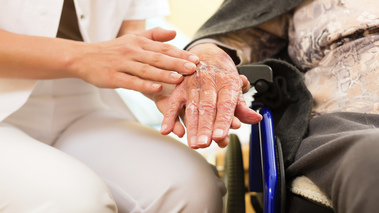
In an interview with NICE Andrea Sutcliffe, Chief Inspector for Adult Social Care at the CQC, says that using NICE products will help underpin the characteristics of good and outstanding social care services.
With more people living longer than ever before, demand for social care is rising. The number of older people in the UK is set to rise to 16 million over the next 20 years, and while many people are often looked after very well in care homes, others are often not so fortunate.
NICE published a social care quality standard in December 2013, which aims to reduce variation in the treatment and care of older people in care homes.
The standard features five statements to help tackle loneliness, depression and low self-esteem among older people in care homes.
Commenting on this quality standard, and forthcoming NICE guidance and quality standards, Ms Sutcliffe said that it is important that social care services follow NICE’s advice.
She said: “At the CQC we are asking the questions that matter to people. We’re asking whether services are safe, caring, effective, responsive to people’s needs, and well led.
“And the way that we can do this is by identifying key lines of enquiry – so the questions that we will ask when we go out on inspections. We will also identify what the characteristics are of the services that we see, so whether they are good, outstanding, require improvement or are inadequate.
“This quality standard will inform the questions that we ask, and help us to provide the understanding of what ‘good’ and ‘outstanding’ practice looks like in this area.”
Ms Sutcliffe continued that the CQC will use the quality standard to train its inspectors to ensure consistency in judgments over the services that it is regulating.
She added that statements within the quality standard “absolutely relate” to the questions that the CQC should be asking about whether a service is effective and responsive to people’s needs.
“This will be much better for people who are using the services who rely on our judgements, and much more helpful for people providing services so that they know what it is they should be doing to provide a ‘good’ or ‘outstanding’ service,” she said.
NICE has a suite of guidance and advice products that can help improve services in care homes.
Forthcoming social care guidelines will cover home care, which will be out for consultation from 5 March. They will also cover the social care of older people with multiple long-term conditions, and the transition between inpatient hospital settings and community or care home settings for adults with social care needs.